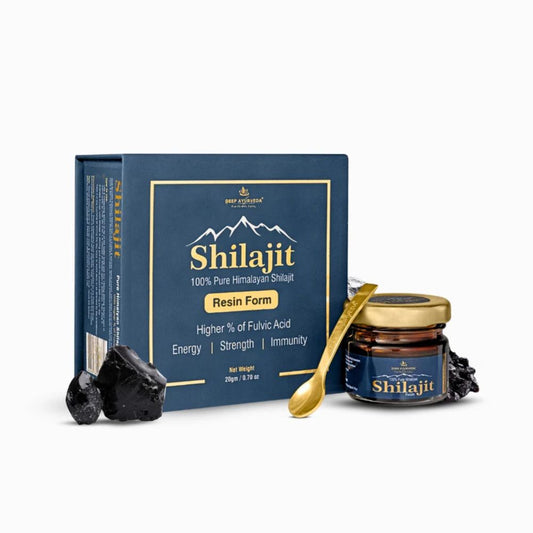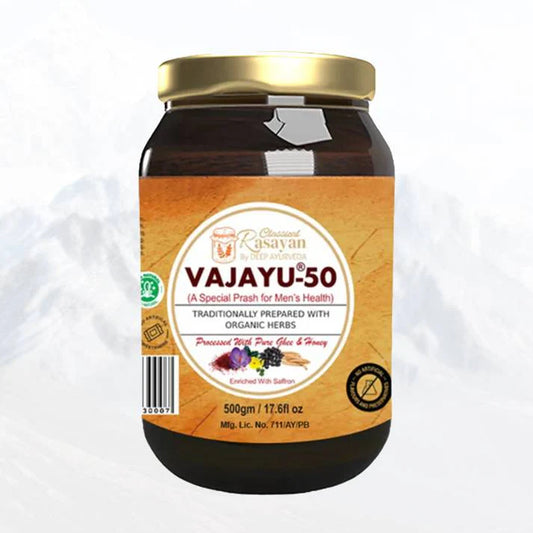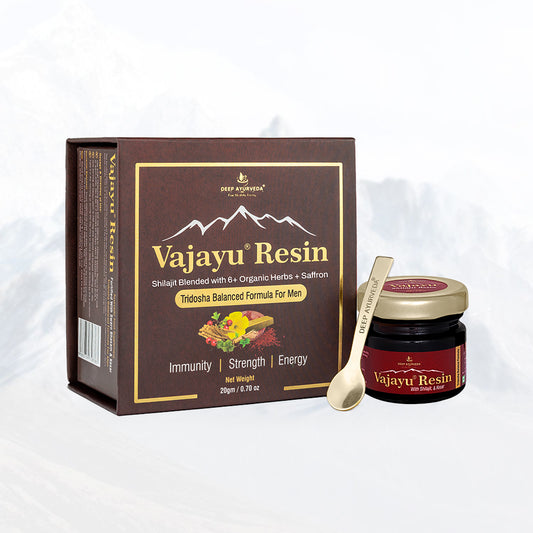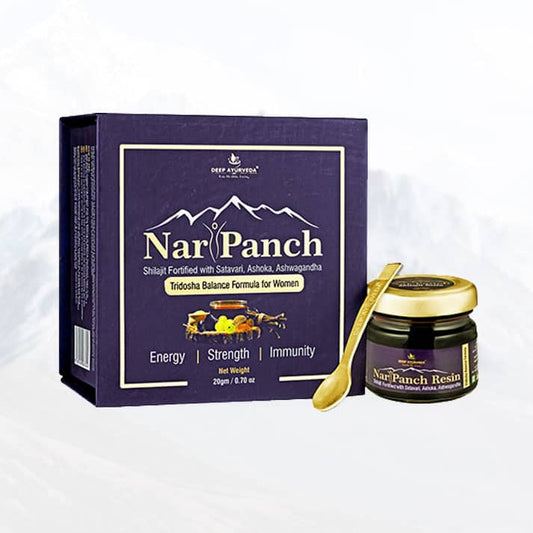What is Panchakarma ?
Panchakarma is a traditional Ayurvedic detoxification and rejuvenation therapy. It is a Sanskrit word that means "five actions" or "five treatments." It is a holistic approach to healing and balancing the body, mind, and spirit.
Panchakarma is a systematic process that involves five main procedures:
- 1. Vamana (Emesis): This is a therapeutic vomiting procedure to eliminate toxins and excess phlegm from the body.
- 2. Virechana (Purgation): This involves the use of herbal laxatives to eliminate toxins and excess bile from the body.
- 3. Basti (Enema): This is a herbal enema to remove toxins and cleanse the colon.
- 4. Nasya (Nasal Administration): This involves the application of herbal oils or powders to the nasal passages to cleanse and open the respiratory system.
- 5. Rakta Mokshana (Bloodletting): This is the removal of small amounts of blood to eliminate toxins and purify the blood.
Panchakarma aims to detoxify the body, strengthen the immune system, restore balance to the doshas (bioenergies), improve digestion and metabolism, eliminate stress and anxiety, and promote overall health and well-being. It is usually recommended to be done under the guidance of a qualified Ayurvedic practitioner, as it requires proper assessment and personalized treatment plans based on an individual's constitution (Prakriti) and imbalances (Vikriti).
Panchakarma is considered a powerful therapeutic intervention in Ayurveda to cleanse and rejuvenate the body, mind, and spirit, and to restore optimal health and vitality.
Contrary to popular belief, Panchakarma is not a mere "gut cleanse" or a series of massages found at a spa. It is a powerful and profound therapeutic intervention, designed to address both existing health issues and prevent their recurrence in the future.
As explained by Vaidya Dr. Baldeep Kour, an MD and Chief Ayurveda Consultant at Deep Ayurveda Australia, Panchakarma is a highly advanced process that purifies and resets the entire body-mind system. It not only effectively resolves existing disorders but also strengthens the body's ability to resist future problems.
Panchakarma, an Ayurvedic therapy, consists of five main treatments: Vamana, Virechana, Vasti, Nasya, and Raktamokshana.
These five Panchakarma process involves three stages: Purva Karam (preparation), Pradhana Karama (cleansing therapies) and (Pachat Karam ) post-cleanse rejuvenation. The main objective is to detoxify and eliminate imbalances from the body. This is achieved by stimulating the body to digest toxins, strengthening the digestive system, clearing blocked channels, and eliminating imbalances. After elimination, rejuvenation therapies are performed to restore and nourish the body.
The entire Panchakarma process can last from a week to a month or more. The panchakarma stages include:
Purva Karma Or Preparation for Panchakrma
 Purva Karma includes dietary and lifestyle adjustments, digestion and strengthening of the digestive system, and sweat-inducing therapies. Pradhana Karma focuses on eliminating toxins and addressing imbalances through therapies such as Virechana, Nasya, and Vasti.
Purva Karma includes dietary and lifestyle adjustments, digestion and strengthening of the digestive system, and sweat-inducing therapies. Pradhana Karma focuses on eliminating toxins and addressing imbalances through therapies such as Virechana, Nasya, and Vasti.
Other therapies and bodywork, based on the individual's condition and imbalances, may include herbal treatments, oil pouring, application of warm medicated oils.
Pradhana Karma Or Main Action of Panchkarma
 Pradhana Karma, also known as "main action", is the stage where Ama is eliminated and personalized therapies are administered to address the imbalances of the individual. The duration, selection, sequence, and dosage of these therapies are tailored specifically to the person.
Pradhana Karma, also known as "main action", is the stage where Ama is eliminated and personalized therapies are administered to address the imbalances of the individual. The duration, selection, sequence, and dosage of these therapies are tailored specifically to the person.
These therapies may include a combination of various treatments such as:
- Virechana (purgation therapy) & Vamana Karama (Vomit therapy)
- Nasya (nasal administration of medicinal substances)
- Vasti (medicated enemas). Vasti can be further categorized into Sneha Vasti, which involves the use of medicated oil or ghee, and Niruha Vasti, made from herbal formulations.
Other therapies and bodywork such as Patra potli svedan, Takradhara, Shirodhara, Pichu, Pizhichil, and Kati Vasti may also be included in Pradhana Karma. The choice of therapies depends on factors like the stage and nature of the disease of any indvidual, its chronicity, status of Ama, and which Doshas are imbalanced.
For example:
- Patra potli svedan combines abhyanga (medicated oil massage) with sudation (application of heat) using a heated bolus of herbal leaves. The patra potli svedan treatment is particularly beneficial for joint pain, muscle tension, and inflammation. The heat and herbal properties help to reduce pain and inflammation, improve blood circulation, and relieve stiffness and soreness. It also helps to detoxify the body and promote a sense of well-being.
- Takradhara involves pouring medicated buttermilk on the forehead in a continuous stream. It is a therapeutic treatment used in Ayurveda to promote relaxation and reduce mental stress.
- Shirodhara involves pouring warm, medicated or herb-infused oil, milk, or water over the head. This treatment is deeply relaxing and is believed to balance the mind, nourish the senses, and promote overall well-being. Shirodhara is an ancient Ayurvedic therapy that has been practiced for thousands of years in India. It is often used to treat conditions such as stress, anxiety, insomnia, and headaches.
- Pichu uses thick cotton wool soaked with warm medicated oil applied over the affected area. Pichu therapy can be used to alleviate various conditions such as joint pain, muscle soreness, inflammation, and nerve-related issues.
- Pizhichil involves dipping a cotton cloth in oil and squeezing it to drip like a stream on the body. Pizhichil is considered a highly beneficial therapy in Ayurveda and is often recommended for various conditions such as arthritis, rheumatic disorders, muscle pain, joint stiffness, nervous system disorders, and general fatigue. It is also known to help balance the doshas (Vata, Pitta, and Kapha) and promote overall well-being.
- Kati Vasti involves the application of a semi-solid paste of black gram powder into which warm, herb-infused oil is poured and left for a specified period. Kati Vasti helps in relieving lower back pain, sciatica, and postural imbalances by providing nourishment and strengthening the muscles and tissues in the lumbar region. It also improves blood circulation, reduces inflammation, and improves mobility in the lower back.
These therapies and bodywork treatments might have been performed as part of the preliminary Prakriti Karma stage and could be repeated during the Pradhana Karma stage. The specific therapies and their repetition are determined by the clinical assessment of the practitioner, taking into account the disease's stage and nature, the individual's chronicity of the condition, the presence of Ama, and the imbalances of the Doshas.
Paschat Karma Or Post-cleanse Rejuvenation
 The Paschat Karma phase also focuses on promoting mental and emotional well-being through practices like meditation, yoga, and pranayama. This helps to calm the mind, reduce stress, and improve overall mental health.
The Paschat Karma phase also focuses on promoting mental and emotional well-being through practices like meditation, yoga, and pranayama. This helps to calm the mind, reduce stress, and improve overall mental health.
Dietary guidelines during Paschat Karma include the consumption of fresh, organic, and easily digestible foods. It is important to avoid processed and junk foods as they can disrupt the rejuvenation process. Meals should be taken at regular intervals and chewing the food thoroughly is emphasized to aid in digestion.
Rest and proper sleep are also essential during this phase. It is recommended to go to bed early and wake up early in the morning to align the body's natural rhythms.
Paschat Karma emphasizes the importance of maintaining a positive and peaceful environment. It is suggested to engage in activities that bring joy and happiness, avoid conflicts and negative influences, and surround oneself with supportive and loving relationships.
Overall, Paschat Karma focuses on rebuilding and strengthening the body and mind after the cleansing process. It aims to promote longevity, vitality, and overall well-being by nourishing and rejuvenating the body at a deep level.
Why Panchkarma is needed in the current times
In the current scenario, where we are constantly exposed to various pollutants and toxins in our environment, it has become important to detoxify our body regularly. Panchkarma is an ancient Ayurvedic detoxification therapy that helps in eliminating toxins from the body and restoring balance.

Here are some reasons why Panchkarma is needed in the current times:
- Managing Stress: The World Health Organization (WHO) has declared stress as an epidemic that affects our mental health, quality of sleep, and lifestyle choices.
- Addressing Nutritional Challenges: There is a prevalence of nutritional challenges worldwide, including deficiencies and obesity. The United Nations has recognized the years 2016-2025 as "the Decade of Action on Nutrition," with 88% of nations and 2 billion people suffering from malnutrition. The COVID-19 pandemic has only exacerbated this issue.
- Dealing with the Negative Impact of Processed Foods: While processed and fast foods were meant to provide convenience, they have led to various negative effects on nutrition. For instance, a packet of chips costs less than an organic apple, highlighting the affordability and accessibility issues. Additionally, consuming these foods can potentially lead to premature death, even surpassing the risks associated with cigarette smoking.
- Reducing Exposure to Environmental Toxins: Our artificial living environment exposes us to numerous environmental pollutants and toxins, such as fertilizers, preservatives, mercury in fish, acid rain, smog, synthetic chemicals, toys, and jewelry containing lead, hormones in dairy products, non-organic and genetically modified foods , as well as contaminated beef. These factors greatly impact our health and well-being.
- Strengthening the Immune System: With the emergence of the COVID-19 pandemic, communicable diseases have once again become a concern. The Ayurvedic approach to addressing pathogens is by focusing on strengthening the host rather than solely targeting the pathogen.
- Managing Lifestyle and Inflammation: Lifestyle-related, autoimmune, and metabolic disorders are prevalent, with more than half of Americans suffering from lifestyle-based conditions like Type-2 diabetes, kidney, lung, or joint diseases, cardiovascular issues, and certain forms of cancer. The underlying cause in all of these diseases is inflammation. Chronic, degenerative diseases, metabolic syndromes, and cancers share a common pathological feature, which is inflammation.
Main Benefits of Panchakarma Treatment:
- According to the research paper "A Practical Handbook of Panchakarma Procedures," Panchakarma is a minimally invasive bio-cleansing procedure recommended for lifestyle, metabolic, autoimmune diseases, and even as a preventive measure for healthy individuals.
- Panchakarma helps reset the digestive and metabolic fire or Agni, which plays a crucial role in maintaining overall health, homeostasis, bodily functions, strength, and immunity. It effectively removes A ma or toxins that accumulate in the body due to inadequate digestion caused by imbalances, lifestyle choices, psychological factors like trauma, and exposure to environmental toxins.
- The presence of Ama in the body can lead to various symptoms and disorders such as heaviness, lethargy, mucus build-up, weakened immunity, frequent colds and flu, stiff joints, a white coating on the tongue, brain fog, digestive issues, depression, and various chronic diseases.
- In the 21st century, these chronic disorders, coupled with the widespread prevalence of stress, have become significant health challenges. According to the Australian Bureau of Statistics published a report on selected long-term health conditions and prevalence in Australia, Around 46.6% of Australians from different age groups experienced at least one chronic condition, while 18.6% had two or more chronic conditions. For females, nearly half (49.0%) had one or more chronic conditions, and 20.7% had two or more. Regarding males, 43.9% had one or more chronic conditions, and 16.4% had two or more.
- In addition to addressing these health challenges, Panchakarma is beneficial in combating the effects of environmental toxins. Researchers have identified nearly 800 chemicals of concern that are linked to various ailments such as diabetes, certain forms of cancer, heart problems, and fertility issues.
Overall, Panchakarma plays a vital role in promoting and maintaining optimal health, detoxifying the body, and addressing the underlying causes of various health conditions.
Panchakarma Training Program in Australia
Deep Ayurveda is offering a Panchakarma training program in Australia. The Online training program will be conducted by experienced Ayurveda doctors and therapists who have extensive knowledge and experience in Panchkarma therapy. Participants will be taught the various techniques and procedures involved in Panchkarma, including oil massages, herbal steam baths, herbal enemas, and nasal cleaning.
The program will also cover the theoretical aspects of Panchkarma, including understanding the doshas (biological energies) and how they affect our health, as well as the benefits and contraindications of Panchkarma therapy.
Participants will have hands-on practical training, where they will get the opportunity to practice Panchkarma techniques on real patients under the guidance of experienced professionals. This practical training will help participants develop the necessary skills and confidence to offer Panchkarma therapy to their clients.
Upon successful completion of the program, participants will receive a certification from Deep Ayurveda India, which is recognized by various Ayurveda associations and Ayush Department of India.
